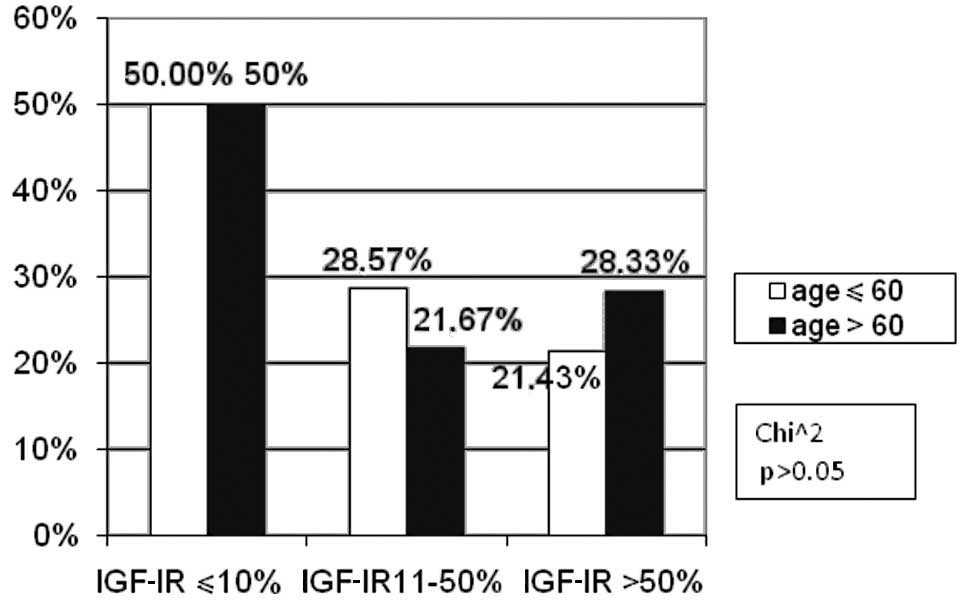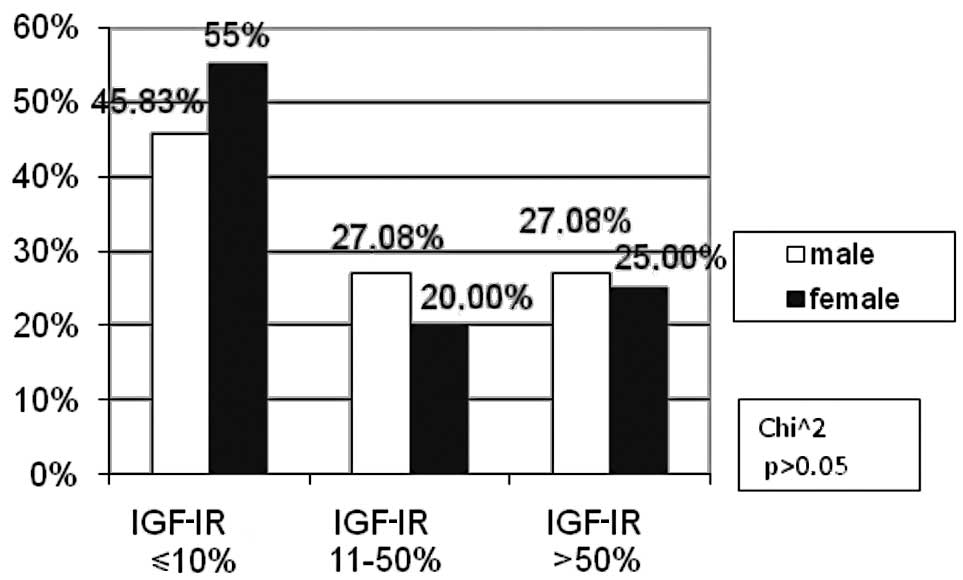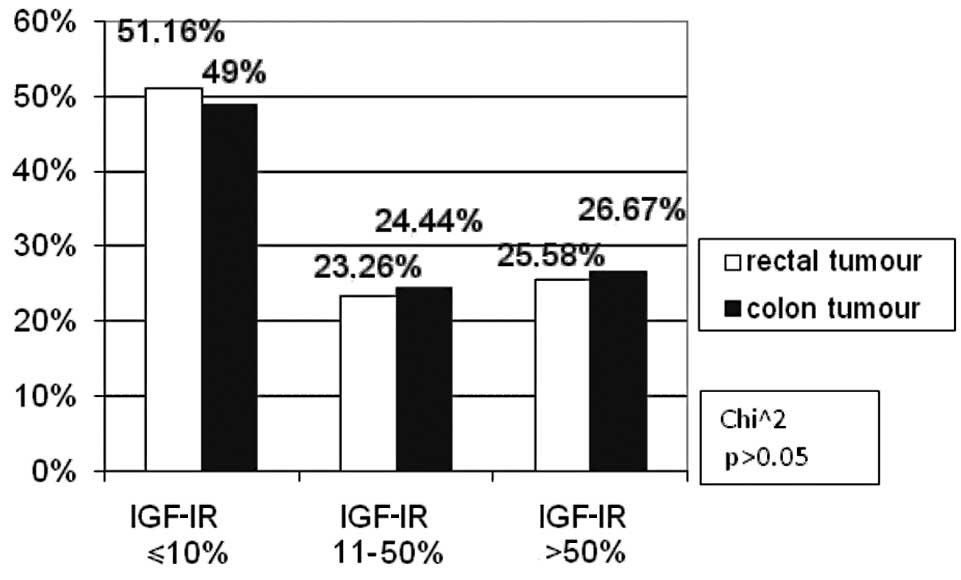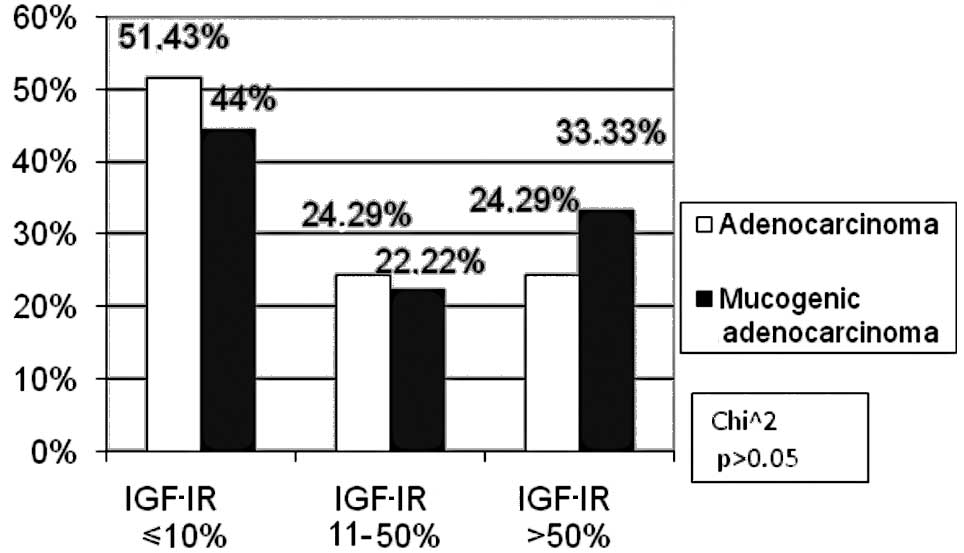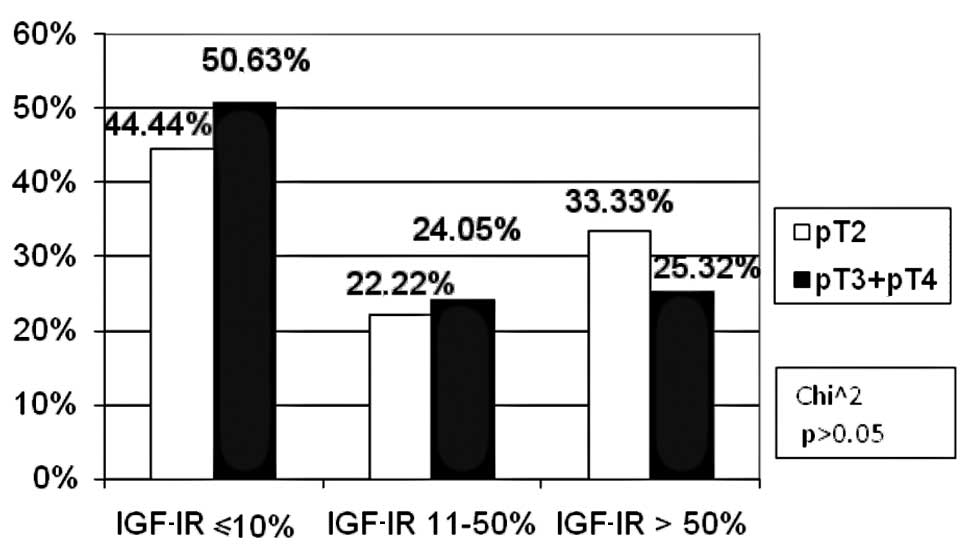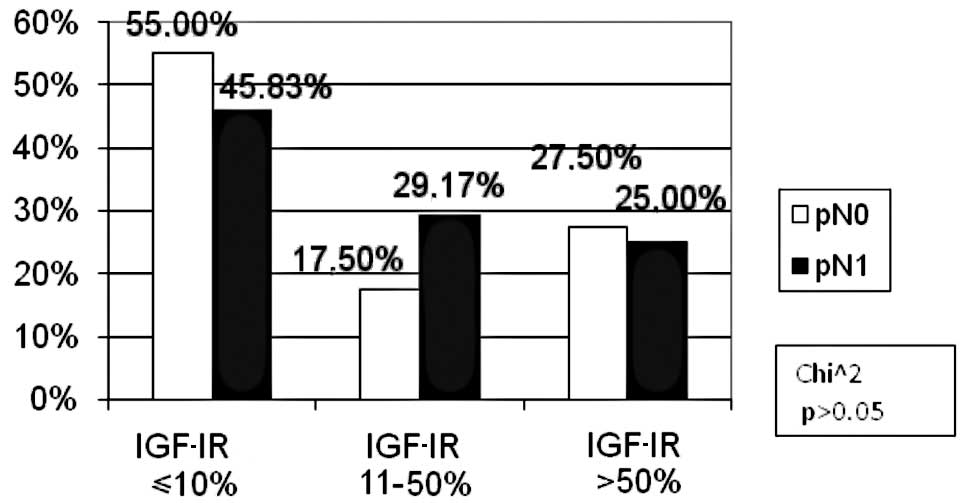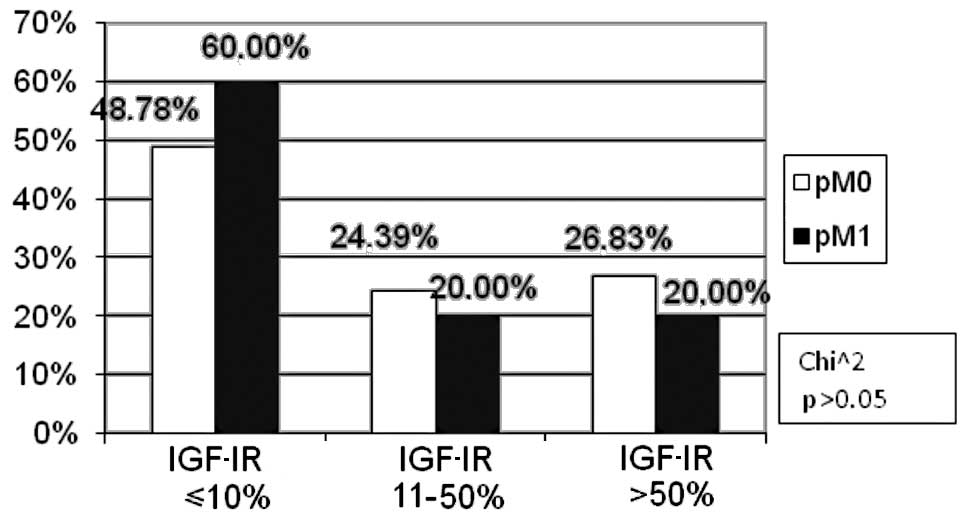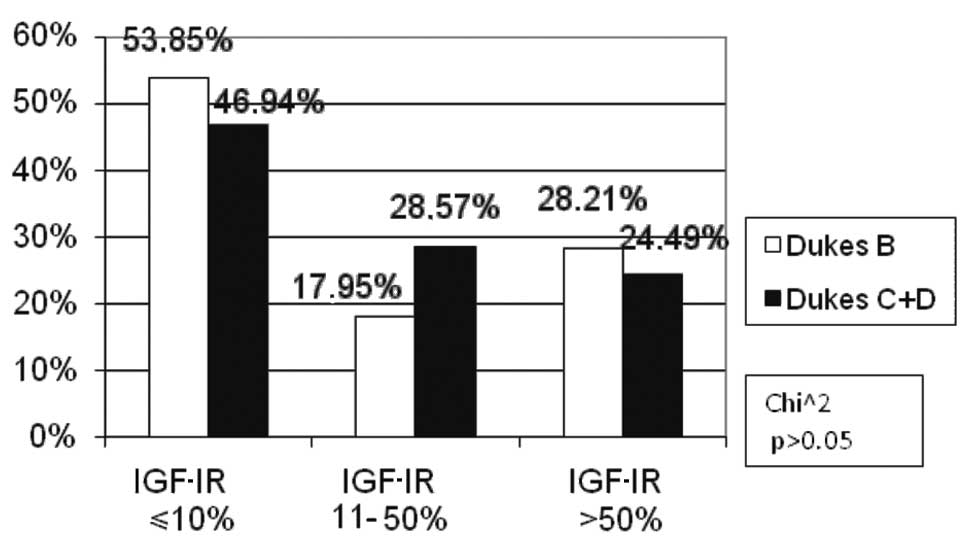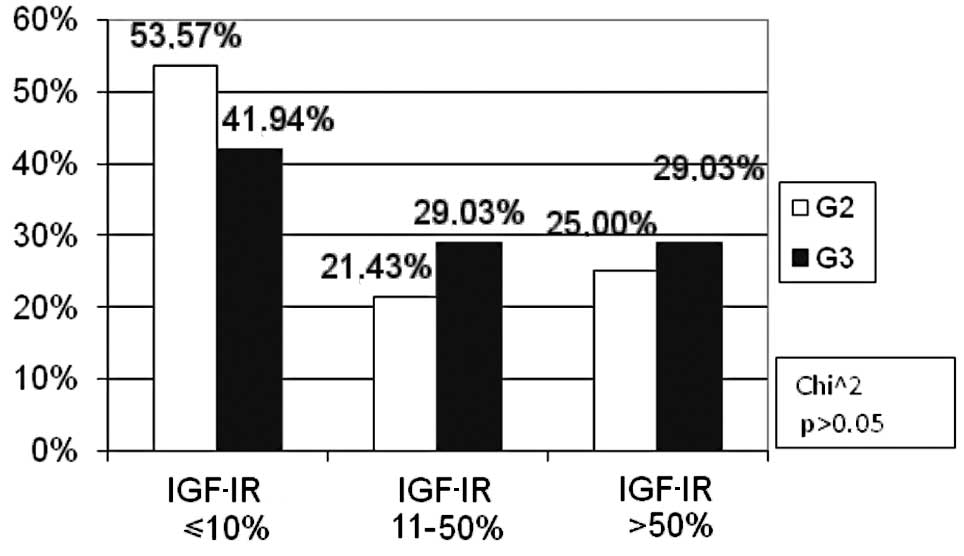|
1
|
Mauro L and Surmacz E: IGF-I receptor,
cell-cell adhesion, tumor development and progression. J Mol
Histol. 35:247–253. 2004. View Article : Google Scholar : PubMed/NCBI
|
|
2
|
Grimberg A and Cohen P: Role of
insulin-like growth factor and their binding proteins in growth
control and carcinogenesis. J Cell Physiol. 183:1–9. 2000.
View Article : Google Scholar : PubMed/NCBI
|
|
3
|
Adams TE and Epa VC: Structure and
function of the type I insulin-like growth factor receptor. Cell
Moll Life Sci. 57:1050–1093. 2000. View Article : Google Scholar : PubMed/NCBI
|
|
4
|
Baserga R: The IGF-I receptor in cancer
research. Exp Cell Res. 253:1–6. 1999. View Article : Google Scholar : PubMed/NCBI
|
|
5
|
Reinmuth N, Fan F, Liu W, Parikh AA and
Stoeltzing O: Impact of insulin-like growth factor receptor-I
function on angiogenesis, growth and metastasis of colon cancer.
Lab Invest. 82:1377–1389. 2002. View Article : Google Scholar : PubMed/NCBI
|
|
6
|
Valentinis B and Baserga R: IGF I receptor
signaling in transformation and differentiation. J Clin Pahol.
54:133–137. 2001.PubMed/NCBI
|
|
7
|
Rouyer-Fessard C, Gammeltoft S and
Laburthe M: Expression of two types of receptor for insulin-like
growth factors in human colonic epithelium. Gastroenterol.
98:703–707. 1990.PubMed/NCBI
|
|
8
|
Renehan AG, Painter JE, O’Halloran D,
Atkin WS, Potten CS, O’Dwyer ST and Shalet SM: Circulating
insulin-like growth factor II and colorectal adenomas. J Clin
Endocrinol Metab. 85:3402–3408. 2000.PubMed/NCBI
|
|
9
|
Wu Y, Yakar S, Zhao L, Hennighausen L and
LeRoith D: Circulating insulin-like growth factor-I levels regulate
colon cancer growth and metastasis. Cancer Res. 15:1030–1035.
2002.PubMed/NCBI
|
|
10
|
Reinmuth N, Liu W, Fan F, Jung YD and
Ahmed SA: Blockade of insulin-like growth factor I receptor
function inhibits growth and angiogenesis of colon cancer. Clin
Cancer Res. 8:3259–3269. 2002.PubMed/NCBI
|
|
11
|
Weber MM, Fottner C, Liu SB, Jung MC,
Engelhardt D and Baretton GB: Overexpression of the insulin-like
growth factor I receptor in human colon carcinomas. Cancer.
95:2086–2095. 2002. View Article : Google Scholar : PubMed/NCBI
|
|
12
|
Hakam A, Yeatman TJ, Lu L, Mora L, Marcet
G, Nicosia SV, Karl RC and Coppola D: Expression of insulin-like
growth factor-1 receptor in human colorectal cancer. Hum Patol.
30:1128–1133. 1999. View Article : Google Scholar : PubMed/NCBI
|
|
13
|
Adenis A, Peyrat JP, Hecquet B, Delobelle
A, Depadt G, Quandalle P, Bonneterre J and Demaille A: Type I
insulin-like growth factor receptors in human colorectal cancer.
Eur J Cancer. 31:50–55. 1995. View Article : Google Scholar : PubMed/NCBI
|
|
14
|
Zenilman ME and Graham W: Insulin-like
growth factor I receptor messenger RNA in the colon is unchanged
during neoplasia. Cancer Invest. 15:1–7. 1997. View Article : Google Scholar : PubMed/NCBI
|
|
15
|
Nosho K, Yamamoto H, Taniguchi H, Adachi
Y, Yoshida Y, Arimura Y, Endo T, Hinoda Y and Imai K: Interplay of
insulin-like growth factor-II, insulin-like growth factor-I,
insulin-like growth factor-I receptor, COX-2, and matrix
metalloproteinase-7, play key roles in the early stage of
colorectal carcinogenesis. Clinical Cancer Res. 10:7950–7957. 2004.
View Article : Google Scholar : PubMed/NCBI
|
|
16
|
Pollak MN, Perdue JF, Margolese RG, Baer K
and Richard M: Presence of somatomedin receptors on primary human
breast and colon carcinomas. Cancer Lett. 38:223–230. 1987.
View Article : Google Scholar : PubMed/NCBI
|
|
17
|
Teramukai S, Rohan T, Lee KY, Eguchi H,
Oda T and Kono S: Insulin-like growth factor (IGF)-I, IGF-binding
protein-3 and colorectal adenomas in Japanese men. Jpn J Cancer
Res. 93:1187–1194. 2002. View Article : Google Scholar : PubMed/NCBI
|
|
18
|
Adachi Y, Lee CT, Coffee K, Yamagata N,
Ohm JE, Park KH, Dikov MM, Nadaf SR, Arteaga CL and Carbone DP:
Effects of genetic blockade of the insulin-like growth factor
receptor in human colon cancer cell lines. Gastroenterology.
123:1191–1204. 2002. View Article : Google Scholar : PubMed/NCBI
|
|
19
|
Hassan AB and Macaulay VM: The
insulin-like growth factor system as a therapeutic target in
colorectal cancer. Ann Oncol. 13:349–356. 2002. View Article : Google Scholar : PubMed/NCBI
|
|
20
|
Moschos SJ and Mantzoros CS: The role of
the IGF system in cancer: from basic to clinical studies and
clinical applications. Oncology. 63:317–332. 2002. View Article : Google Scholar : PubMed/NCBI
|
|
21
|
Khandwala HM, McCutcheon IE, Flyvbjerg A
and Friend KE: The effects of insulin-like growth factors on
tumorigenesis and neoplastic growth. Endocr Rev. 21:215–244. 2000.
View Article : Google Scholar : PubMed/NCBI
|
|
22
|
Sandhu MS, Dunger DB and Giovannucci EL:
Insulin, insulin-like growth factor-I (IGF-I), IGF binding
proteins, their biologic interactions, and colorectal cancer. J
Natl Cancer Inst. 94:972–980. 2002. View Article : Google Scholar : PubMed/NCBI
|
|
23
|
Durai R, Yang W, Gupta S, Seifalian AM and
Winslet MC: The role of the insulin-like growth factor system in
colorectal cancer: review of current knowledge. Int J Colorectal
Dis May. 20:203–220. 2005. View Article : Google Scholar : PubMed/NCBI
|















